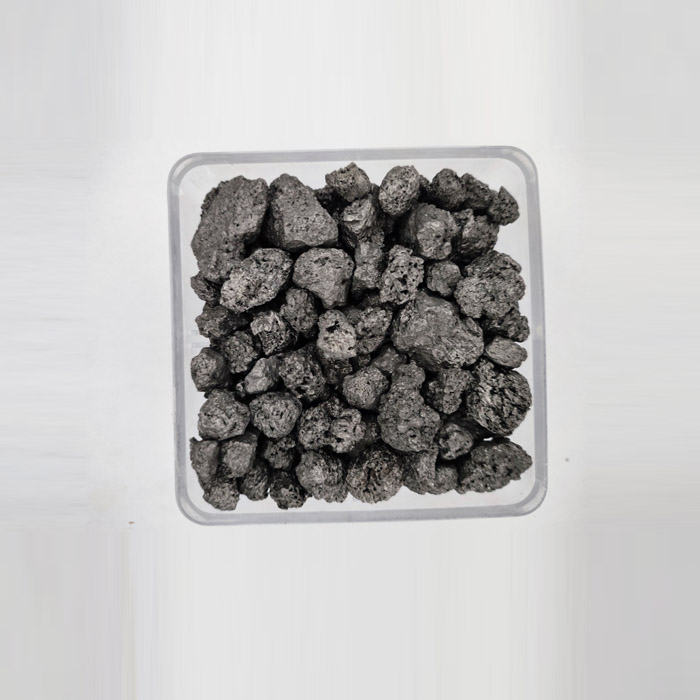Aug . 16, 2024 17:11 Back to list
Low Sulfur Petroleum Coke Suppliers for High-Quality Industrial Applications
Understanding Low Sulfur Petroleum Coke Suppliers
In the energy and manufacturing sectors, petroleum coke (petcoke) plays a pivotal role as a carbon-rich solid that is derived from oil refining. Specifically, low sulfur petroleum coke has become increasingly sought after due to its myriad applications, including in the production of aluminum, battery electrodes, and as a fuel source in various industrial processes. This article explores the significance of low sulfur petroleum coke suppliers, emphasizing their role in meeting the evolving demands of the global market.
The Importance of Low Sulfur Petroleum Coke
Low sulfur petroleum coke is characterized by its reduced sulfur content, which is crucial for industries aiming to minimize environmental impact. High sulfur content can lead to increased emissions of sulfur dioxide (SO2) when burned, contributing to air pollution and acid rain. Consequently, regulations worldwide are tightening around sulfur emissions, pushing industries towards cleaner fuel sources. Suppliers of low sulfur petroleum coke are positioned to meet this demand by providing products that comply with stringent environmental standards.
Applications of Low Sulfur Petroleum Coke
The applications of low sulfur petcoke are diverse, making it a valuable commodity across various industries
1. Aluminum Production Low sulfur petroleum coke is primarily utilized in the aluminum industry as a key component in the production of carbon electrodes. These electrodes are necessary for the electrolysis process that extracts aluminum from its ore, and using low sulfur coke ensures that the final product is of high quality and purity.
2. Energy Generation In power generation, low sulfur petroleum coke serves as an efficient, cost-effective fuel source. Power plants often prefer it due to its high calorific value and low emissions profile, making it an attractive alternative to traditional fossil fuels.
3. Cement Manufacturing The cement industry also benefits from using low sulfur petcoke as a fuel for kilns. Its lower sulfur content helps in producing clinker without adverse chemical reactions that could impact the quality of the cement produced.
4. Carbon Products Manufacturing Various industries rely on low sulfur petroleum coke for manufacturing carbon products, such as carbon black and graphite. Its reduced sulfur levels facilitate the production of high-grade carbon materials suitable for specialized applications.
low sulfur petroleum coke supplier

The Role of Suppliers in the Market
Suppliers of low sulfur petroleum coke play a critical role in bridging the gap between production and consumption. They ensure the availability of high-quality products that meet the specific requirements of different industries. Additionally, established suppliers often provide value-added services, such as logistical support, quality assurance, and technical expertise, assisting customers in optimizing their usage of petcoke.
Factors to Consider When Choosing a Supplier
Selecting the right supplier of low sulfur petroleum coke is essential for industries dependent on this material. Companies should consider several factors
1. Quality Assurance Suppliers should demonstrate a commitment to quality, providing products that consistently meet specifications, particularly sulfur content and physical composition.
2. Supply Stability A reliable supplier should have the capacity to meet the demands of clients, ensuring continuous supply without interruptions.
3. Sustainability Practices Given the growing emphasis on sustainability, potential buyers should evaluate suppliers based on their environmental policies and practices.
4. Market Reputation A supplier's reputation in the market can provide insights into their reliability, customer service, and product quality.
Conclusion
As the demand for environmentally friendly materials intensifies, low sulfur petroleum coke suppliers are set to play a vital role in supporting industries striving for cleaner production processes. Their ability to provide high-quality, low sulfur products will not only meet regulatory requirements but also contribute to a more sustainable future in industrial operations. By choosing the right supplier, businesses can enhance their efficiency, reduce their environmental impact, and align with global sustainability goals.
-
High Purity Graphitized Petroleum Coke | Low N Recarburiser
NewsAug.08,2025
-
Fe-C Composite Pellets for BOF: Enhance Steelmaking Efficiency
NewsAug.07,2025
-
Eco-Friendly Granule Covering Agent | Dust & Caking Control
NewsAug.06,2025
-
Fe-C Composite Pellets for BOF: High-Efficiency & Cost-Saving
NewsAug.05,2025
-
Premium Tundish Covering Agents Exporters | High Purity
NewsAug.04,2025
-
Fe-C Composite Pellets for BOF | Efficient & Economical
NewsAug.03,2025
